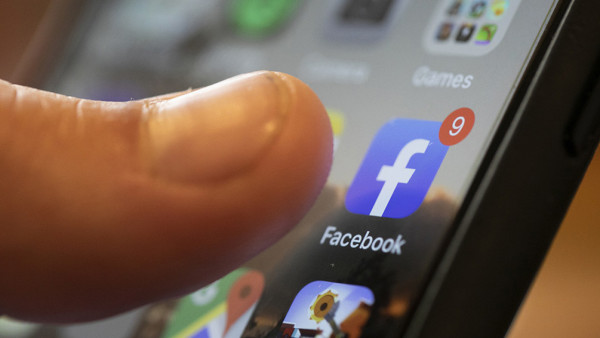
The 'ID-on't renounce my freedom' website contains articles and news related to the growing threat to our personal freedom and privacy.
info@id-ont.org
SAN FRANCISCO — In the age of mass digital surveillance, how private should your data and communications be? That question lies at the heart of the encryption panel that kicked off the Enigma Conference here yesterday (Jan. 27).
On 15 January, Advocate General (AG) Campos Sánchez-Bordona of the Court of Justice of the European Union (CJEU) delivered his opinions on four cases regarding data retention regimes in France, Belgium and the UK, in the context of these Members States’ surveillance programmes.
Government use of face surveillance technology chills free speech, threatens residents’ privacy, and amplifies historical bias in our criminal system.
Amazon, Alphabet, Alibaba, Facebook, Tencent - five of the world's 10 most valuable companies, all less than 25 years old - and all got rich, in their own ways, on data.
More than 267 million Facebook user phone numbers, names and user IDs were exposed in a database that anyone could access online, adding to a long list of privacy and security mishaps that continue to plague the world's largest social network.
From hovering drones to hawk-eyed CCTV cameras, Indians by 2020 have become used to being surveilled. Facial recognition, one of the booming, yet controversial technologies, is being harnessed by the Government on a large scale.
Parents buy their children GPS-enabled smartwatches to keep track of them, but security flaws mean they’re not the only ones who can.
One of the most senior policing figures in Wales has warned that the use of facial recognition technology at the country’s biggest football derby this weekend could create miscarriages of justice.
Baby Monitor The St. James Hospital in Dublin, Ireland, plans on installing facial recognition security cameras in a new children’s hospital facility that’s still under construction.
A family in Georgia warns others after a stranger hacked into their Ring home security system and started talking to their 8-year-old daughter.
Government-led mass surveillance schemes in Belgium, France and the United Kingdom were delivered a potential blow by an opinion from the advocate-general of the EU's top court in Luxembourg on Wednesday (15 January).
Draft white paper suggest prohibition lasting three to five years is being considered
Etay Maor, chief security officer at global threat intelligence firm IntSights, travels often. In fact, he took more than 100 flights over the past year. During his trips, he noticed a troubling trend: Passengers leaving their boarding passes behind on the plane.
The European Commission is considering measures to impose a temporary ban on facial recognition technologies used by both public and private actors, according to a draft white paper on Artificial Intelligence obtained by EURACTIV.
Germany’s Interior Minister Horst Seehofer plans to use automatic facial recognition at 134 railway stations and 14 airports, according to a news report published on 3 January. Although official confirmation of the plan is still missing, an alliance between civil society and politicians has called for the banning of this surveillance technology. EURACTIV Germany reports.

Facebook and Twitter had been ordered to relocate all their servers storing Russians' data into Russia by Jan. 31
Russia’s communications watchdog said Friday (31/1/2020) it has launched fresh proceedings against Facebook and Twitter over their failure to comply with local data laws.
The social media giants “have not provided information on the localization of Russian users’ database inside Russian servers on time,” the watchdog, Roskomnadzor, said. Roskomnadzor had issued a Jan. 31 deadline for Facebook and Twitter to report their compliance with a law that requires all servers that store Russians’ data to be relocated into Russia.
The social media giants could be forced to pay a fine ranging from 1 million rubles (approximately $16,000) and 6 million rubles ($94,000), it said.
Roskomnadzor said Friday it will file its complaint in Russian court in three days.
Under a new law imposing stiffer fines that President Vladimir Putin signed last month, fines for repeat offenses go up to 18 million rubles (almost $290,000).
Russia’s Communications Ministry has backed fines as more effective measures for enforcement than bans.
“You can bypass bans, but if the company works [in Russia], it’ll have to pay,” Deputy Communications Minister Alexei Volin told the state-run TASS news agency Thursday.
Russia blocked the professional networking website LinkedIn in 2016 under the data-localization legislation.
Source: themoscowtimes.com
Beijing’s pursuit of control over a Muslim ethnic group pushes the rules of science and raises questions about consent.
According to his report The world, Rouen-Charles Nicolle University Hospital is today struggling to recover from a devastating ransomware attack that hit them almost a week ago. It is one of the largest hospitals in Northern France, with 2500 beds and 10000 staff, so the disorder affects many hundreds of people in need of help and care. Currently, the ransomware worm has spread to about six thousand hospital computers, while the IT team decided to close the rest to avoid spreading.
On the 8th January, over 50 organisations from every corner of the globe asked Google to stop manufacturers and vendors using android phones to exploit people who can’t afford the latest iPhone. Liberties was one of those organisations.
Spyware like GoGuardian, Bark, and Gaggle are monitoring students’ internet habits, both on and off school grounds.